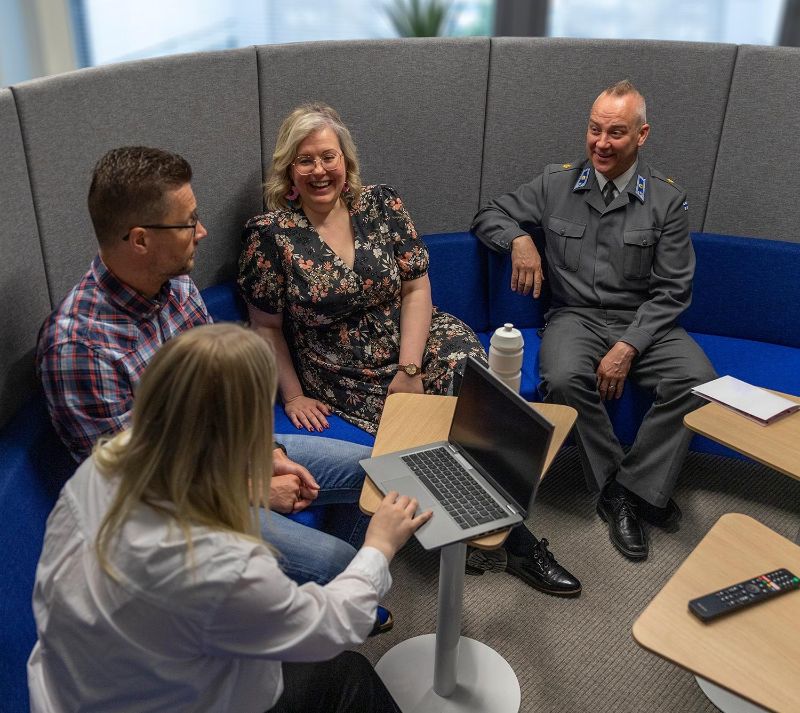Special officer
"A person applying to become a special officer must be either a non-commissioned officer or an officer of the reserve. In addition to professional skills, the work requires openness, helpfulness and willingness to learn new things."

- The name shall not be published at the request of the interviewee.
- Special officer at the Finnish Defence Forces.
- Graduated as a dressmaker and secondary school graduate from Tampere Vocational College and as an engineer from Häme University of Applied Sciences. Currently completing Master of Science (Technology) studies at the University of Tampere.
- Ten years of work experience in the field.
Briefly explain what you do for a living.
I work as a special officer at the Army Academy. I am responsible for developing and testing an application with my team.
How have you ended up in the profession of your choice?
I graduated as a dressmaker and secondary school graduate, but I have always been interested in information technology and especially telecommunications technology. I did my military service at the Armoured Brigade, and after I was discharged, I worked as a contract soldier. At that time, I got interested in working in the Defence Forces, but technical expertise was more interesting than training conscripts. At the beginning of 2018, I was offered the opportunity to work in an IT sector position at the Finnish Defence Forces, and that’s the path I’m still following.
Describe your typical working day or week.
There are no two similar working days, even though it sounds like a cliché. I can mainly plan and schedule my work tasks according to my own rhythm. During the working week, I plan acceptance tests for the application and participate in various project meetings. If there is time left, I exercise, as special officers are also required to be in good physical condition. In addition, my studies take up a large portion of my time.
What kind of work environment or working hours do you have?
I mainly work indoors, but sometimes I also get to visit the terrain. I usually work 114 hours and 45 minutes in three weeks. There are approximately 60 days of military exercises during the year, and I travel 10-15 days domestically. I rarely travel abroad. Remote work maximum is 12 days a month, but I usually work two to three days remotely during a three-week period.
What kind of competence or qualities are required in the profession?
A person applying to become a special officer must be either a non-commissioned officer or an officer of the reserve. In addition to professional skills, the work requires openness, helpfulness and willingness to learn new things. I feel that these features are most important.
What is the best thing about your profession?
Colleagues and meaningfulness of work are the best part of this work. In my work community, everyone is treated equally, and a good supervisor supports their subordinates. I have the opportunity to develop my own competence and I like to be able to share it with others. This work also offers challenges, and solving them keeps you brisk and your work interesting.
What are the downsides of the profession or what seems challenging?
Military exercises may seem strenuous, and time away from home is also unfortunate for the family.
What would you tell a person considering the profession of a special officer?
The profession of special officer is not very well known. Special officers are not visible in the daily life of conscripts, nor is their profession presented in higher education institutions. You can and should seek work for us if your own competence and skills meet the requirements of the position at least partially. In-depth management of the systems only comes with time.
It is also good to know that the Defence Forces also provide work in tasks other than officers and non-commissioned officers, as one third of our employees are in civilian positions.
How do you see the future of your profession?
The Finnish Defence Forces always strive to be one step ahead, i.e. we try to predict how military technology, for example, will develop in the future. In addition to technical expertise, the work of a special officer is also about national defence and the fact that my work contribution promotes the development of national defence is important to me.
